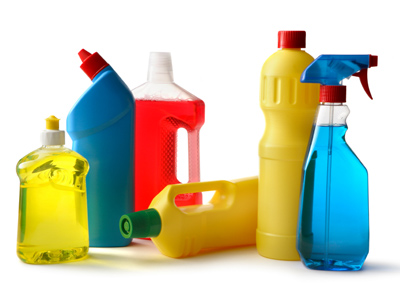Get advice from experienced housekeepers on the different types of cleaning agents for the best results. Share on XHere at Polo & Tweed we have met so many amazing housekeepers. Over the years they have given us some great tips on the most effective cleaning agents that we’d like to share with you.
Here is our guide to the types of cleaning agents used in housekeeping for the best results.
Water
“A colourless, transparent, odourless liquid that forms the seas, lakes, rivers, and rain and is the basis of the fluids of living organisms.”
It’s no surprise that plain water is the most common cleaning agent, but water on its own usually isn’t strong enough for stains and ground in dirt, so housekeepers often dilute stronger cleaning agents in water or use water only for rinsing.
Detergents
“A water-soluble cleansing agent which combines with impurities and dirt to make them more soluble and differs from soap in not forming a scum with the salts in hard water.”
Detergents make removing dirt and dust easy. They are available in solid form, as powder, or liquid. Always dilute or dissolve detergents in water before use. In fact most detergents have to be mixed with water to work properly. They often work best when used at a high temperature.
Degreasers
“A degreaser is a solvent-based or solvent-containing cleaning agent. It is a chemical product mostly used for the removal of water-insoluble substances such as grease, paint, oil, lubricants, corrosive products, abrasive dust and all other organic films.”
Degreasers are specially made to remove grease, especially in the kitchen. Degreasers contain chemicals that are specifically used for breaking down oil and grease. They work especially well for removing stubborn stains.
Abrasives
“A substance used for grinding, polishing, or cleaning a hard surface.”
Abrasives are usually used to make something smooth, shiny and polished. They can be harsh, though, so make sure that whatever you’re cleaning can handle abrasives. Proper care should be taken with abrasives to ensure you do not damage anything as they can be harmful if used incorrectly. For example, a stainless-steel refrigerator could be easily damaged by using abrasives to clean it.
Polishes
“A substance used to give something a smooth and shiny surface when rubbed in.”
Polishes are used to provide a protective and shiny surface on various surfaces such as wood, furniture, leather and metals. Polishes can be expensive so use them sparingly and properly. They are not for removing dirt. You should always clean the surface before attempting to polish it.
How can P&T help?
If you are a housekeeper looking for more tips on housekeeping, or you just want to improve your housekeeping skills within your own home, get in touch to join one of our training courses. We look forward to hearing from you.

